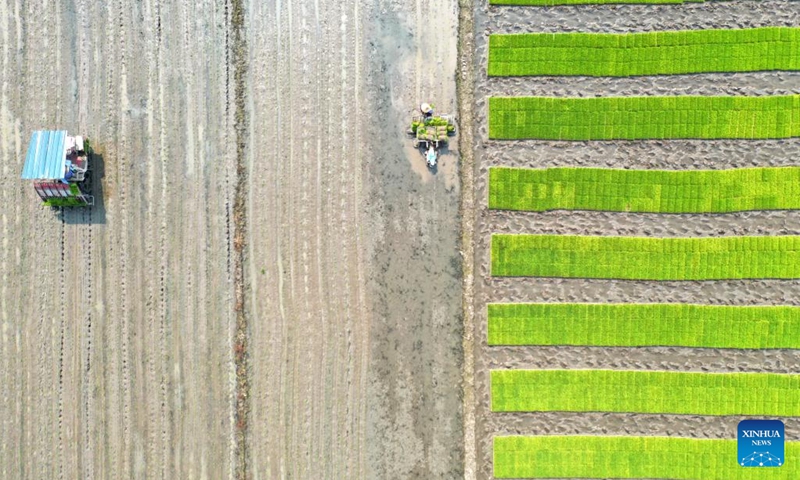Savage as usual. If only you were speaker for chinese foriegn affair.Yeah, the power to stop COVID like China did once before.
I haven't witnessed any. Post them so we can witness them together.
And cause China's economy to grow a little slower whereas according to the opposite Western policy, the whole country will fall into recession with over 1 million deaths in a population 25% the size of China's.
Hu Xijin said that? Hu's about to disappear and become "who?" Unless you made it up.
We don't do that in China; this kind of crap is played in the West and maybe Poland (I don't know; I don't follow developments of small unimportant countries, sorry).
You are using an out of date browser. It may not display this or other websites correctly.
You should upgrade or use an alternative browser.
You should upgrade or use an alternative browser.
Chinese Economics Thread
- Thread starter Norfolk
- Start date
Mortal Kombat style fatality.Savage as usual. If only you were speaker for chinese foriegn affair.
We got too much grain...
China’s grain exports jump 97.4% in April amid bans by other countries
By Global Times Published: May 09, 2022 09:14 PM

Aerial photo taken on April 19, 2022 shows farmers working in the fields in Leqing City, east China's Zhejiang Province. April 20 marks Guyu, which literally means "grain rain," referring the sixth of the 24 solar terms created by ancient Chinese to carry out agricultural activities.(Photo: Xinhua)
China significantly increased grain exports on a monthly basis in April, even as more countries restricted food exports or intervened in food trade, according to customs data on Monday.
While China's April grain exports increased by 97.4 percent from March, the total export value was only 38.4 percent higher than the previous month. Fertilizer exports increased to 1.74 million tons in April, up from 1.61 million tons in March.
Analysts said that the increase in food prices was far too small compared with the increase in food exports, as international food prices are rising, while noting that China moved to increase grain and fertilizer exports, while other countries impose restrictions or bans.
Grain exports totaled 312,000 tons in April, up 97.4 percent month-on-month. From January to April, grain exports totaled 916,000 tons, according to statistics released on Monday by the General Administration of Customs (GAC).
The value of April's grain exports hit 1.01 billion yuan ($150.1 million), up 38.4 percent from March.
Canned food and meat exports increased 50 percent in March from February, while those of vegetables and edible fungi were up 48.9 percent, dried fruits and nuts up 41.2 percent, and fertilizer up 56.3 percent, according to the GAC's database.
Exports of agricultural products totaled 190.74 billion yuan during the first four months of the year, up 18.7 percent year-on-year. The value was $29.96 billion in US dollar terms, up 21.2 percent year-on-year.
Meanwhile, according to the GAC, China's imports of commodities were more expensive in April on a yearly basis.
For example, China imported 28.36 million tons of soybeans in April, down 0.8 percent year-on-year, while the average import price went up 22.7 percent.
Analysts attributed the price hike to the Russia-Ukraine conflict, as well as grain export bans and restrictions by many countries.
As of the end of April, the number of countries imposing export restrictions on food had increased to 35, with 53 interventions in food trade, 31 of which restricted food exports.
Overall, the Russia-Ukraine crisis has had a limited impact on domestic food prices and agricultural products supplies, but it still calls for vigilance, a Beijing-based analyst surnamed Wang told the Global Times on Monday.
The conflict between Russia and Ukraine triggered a rise of international grain prices, increasing the difficulty and cost of China's imports, said Wang.
China’s grain exports jump 97.4% in April amid bans by other countries
By Global Times Published: May 09, 2022 09:14 PM

Aerial photo taken on April 19, 2022 shows farmers working in the fields in Leqing City, east China's Zhejiang Province. April 20 marks Guyu, which literally means "grain rain," referring the sixth of the 24 solar terms created by ancient Chinese to carry out agricultural activities.(Photo: Xinhua)
China significantly increased grain exports on a monthly basis in April, even as more countries restricted food exports or intervened in food trade, according to customs data on Monday.
While China's April grain exports increased by 97.4 percent from March, the total export value was only 38.4 percent higher than the previous month. Fertilizer exports increased to 1.74 million tons in April, up from 1.61 million tons in March.
Analysts said that the increase in food prices was far too small compared with the increase in food exports, as international food prices are rising, while noting that China moved to increase grain and fertilizer exports, while other countries impose restrictions or bans.
Grain exports totaled 312,000 tons in April, up 97.4 percent month-on-month. From January to April, grain exports totaled 916,000 tons, according to statistics released on Monday by the General Administration of Customs (GAC).
The value of April's grain exports hit 1.01 billion yuan ($150.1 million), up 38.4 percent from March.
Canned food and meat exports increased 50 percent in March from February, while those of vegetables and edible fungi were up 48.9 percent, dried fruits and nuts up 41.2 percent, and fertilizer up 56.3 percent, according to the GAC's database.
Exports of agricultural products totaled 190.74 billion yuan during the first four months of the year, up 18.7 percent year-on-year. The value was $29.96 billion in US dollar terms, up 21.2 percent year-on-year.
Meanwhile, according to the GAC, China's imports of commodities were more expensive in April on a yearly basis.
For example, China imported 28.36 million tons of soybeans in April, down 0.8 percent year-on-year, while the average import price went up 22.7 percent.
Analysts attributed the price hike to the Russia-Ukraine conflict, as well as grain export bans and restrictions by many countries.
As of the end of April, the number of countries imposing export restrictions on food had increased to 35, with 53 interventions in food trade, 31 of which restricted food exports.
Overall, the Russia-Ukraine crisis has had a limited impact on domestic food prices and agricultural products supplies, but it still calls for vigilance, a Beijing-based analyst surnamed Wang told the Global Times on Monday.
The conflict between Russia and Ukraine triggered a rise of international grain prices, increasing the difficulty and cost of China's imports, said Wang.
manqiangrexue
Brigadier
Then China would never have grown to where it is today because I don't know how to de-escalate and I am never nice or respectful to people who aren't nice and respectful to me. It would have been apparent to the West decades ago the threat that China would become if I were the Foriegn Affairs Representative because the instant they thought they could lecture China on any human rights or what we "must" do in line with international conduct, I would have jumped down his throat on what a hippocritical piece of garbage the entire West is with all the war crimes and attrocities they've committed and continue to commit because China a 5,000 year old dragon waking from sleep while his country is nothing but a little mutt in his prime of luck. I will speak that way to every foreign leader who addresses China with a shred of arrogance and China's phase one, which was to quickly soak up foreign technology before self-development, would have stalled.Savage as usual. If only you were speaker for chinese foriegn affair.
So... I am not the right man for the job. Have faith in the CCP. They delivered modern China from where it is; they navigated every peril. They always get the job done. Believe in them.
China maps out measures to develop $3.28 trillion bioeconomy by 2025
By Global Times Published: May 10, 2022 01:27 PM Updated: May 10, 2022 01:21 PM

A vial of the Sinovac COVID-19 vaccine is seen at a vaccination site in Manila, the Philippines on May 1, 2021. (Xinhua/Rouelle Umali)
From developing therapeutic vaccines to biotechnology breeding, China has mapped out measures to develop bioeconomy in the 14th Five-Year Plan (2021-2125) with rollout of a new development plan document.
The bioeconomy includes a wide range of biotic resources developed with biotechnology, such as smart wearable products for remote diagnosis. It covers many industries such as bio agriculture, biomedicine, bio energy and so forth, and is characterized as being highly profit-able, reaching a large market and having high threshold.
According to the aforementioned development plan, which was rolled out by the National Development and Reform Commission (NDRC), China’s top economic planner, China has al-ready made significant achievements in the bioeconomy over recent years, and the 14th Five-Year Plan period is an important window of opportunity for the sector.
In the plan, the NDRC listed the development targets of China’s bioeconomy industries by 2025. For example, the NDRC noted that the total scale of bioeconomy will “reach a new stage,” while the proportion of bioeconomy added value in domestic GDP will also experience stable growth. The country should also see an “evident increase” in bioeconomy
companies with annual revenue of over 10 billion yuan ($1.488 billion).
Bai Jingyu, director of the Center of Innovation-driven Development under the NDRC noted during a press conference on Tuesday that China is aiming to achieve 22 trillion yuan ($3.28 trillion) of total bioeconomy output by the end of 2025, with the core industries amounting to more than 7.5 trillion yuan.
The NDRC also listed a number of pillar industries for bioeconomy, saying that the country would speed up the integration between bio technologies and information technologies.
In particular, it noted that China would speed up upgrading vaccine research and production technologies, develop polyvalent vaccines and therapeutic vaccines to increase China’s capability in dealing with major infectious diseases.
China will also accelerate the industrial application of fields like biological breeding to safe-guard the supply of agricultural products including grain and oil, as well as research new food like artificial protein to lower the environmental and resources pressure arising from traditional breeding industries.
Equation
Lieutenant General
DEM those talented and hardworking Chinese people! They're making it difficult for us MAGA folks to make a living!
Yup, ya heard it right from the man.
“I think there will be some very strong companies coming out of China, there is just a lot of super talented hard-working people in China who strongly believe in manufacturing,” he added.
“They won’t just be burning the midnight oil, they will be burning the 3am oil, they won’t even leave the factory type of thing, whereas in America people are trying to avoid going to work at all.” - Elon Musk
Yup, ya heard it right from the man.
Musk is now a commie. Seize his assets for Ukraine. Oops, I mean "seiye".DEM those talented and hardworking Chinese people! They're making it difficult for us MAGA folks to make a living!
Yup, ya heard it right from the man.
At my work (major multinational) we have European, Asian and American employees. Salaried engineering R&D environment.DEM those talented and hardworking Chinese people! They're making it difficult for us MAGA folks to make a living!
Yup, ya heard it right from the man.
The European employees show up exactly on time and leave exactly on time no matter what.
The Asian employees show up early and leave late if things need to be done, but also go home early if everything is clear.
I won't say much about the rest.

